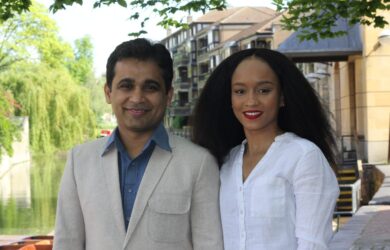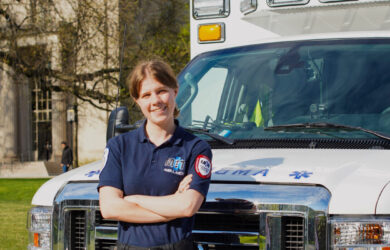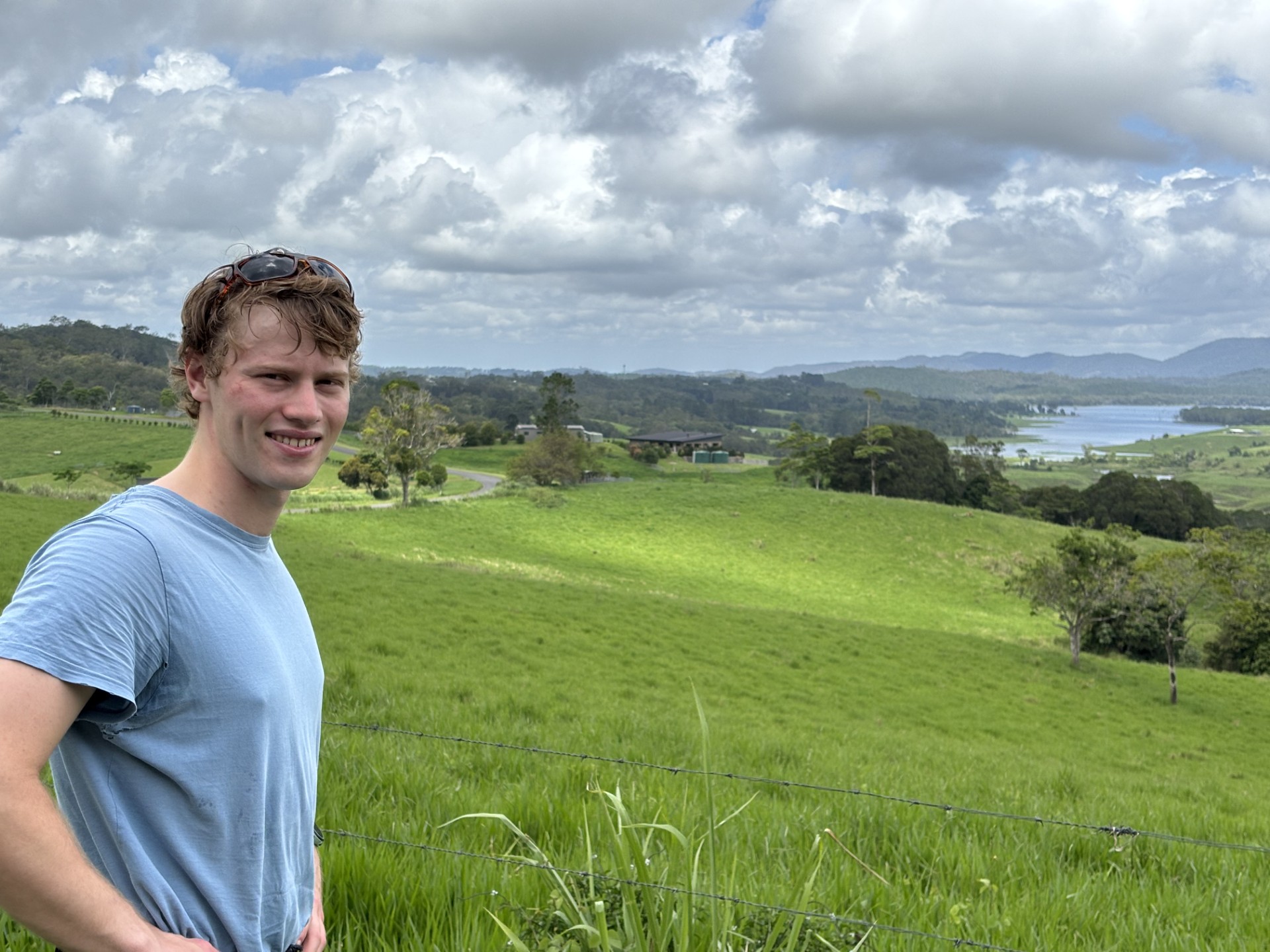
Alex Myhill's research seeks to understand the properties of Earth and how it has evolved over billions of years
At the longest periods, the Earth oscillates only at distinct frequencies, effectively Earthquakes are causing distinct notes to be sounded, just like a guitarist plucking a string.
Alex Myhill
It was during his master’s that Alex Myhill [2022] was introduced to Earth Science and realised just how much we don’t understand about the Earth. He wanted to explore further and his PhD seeks to understand the dynamics that make the Earth tick.
He is developing new techniques for the efficient computation of whole Earth oscillations generated by the largest earthquakes. The aim is to shed new light on currently poorly characterised, and potentially compositionally distinct, parts of the Earth and contribute to a better understanding of the processes of what he calls “the deep interior”.
 For his PhD, he uses earthquake data to explain the properties of the Earth and how it evolved over billions of years. He says the gravitational variations that take place during long period earthquake waves – which can reverberate for weeks – can provide important information about rock density which in turn informs our understanding of Earth’s composition. Ultimately, this leads to a better understanding of the dynamical processes, such as mantle convection and plate tectonics, that shape the interior and exterior of the Earth over millions of years.
For his PhD, he uses earthquake data to explain the properties of the Earth and how it evolved over billions of years. He says the gravitational variations that take place during long period earthquake waves – which can reverberate for weeks – can provide important information about rock density which in turn informs our understanding of Earth’s composition. Ultimately, this leads to a better understanding of the dynamical processes, such as mantle convection and plate tectonics, that shape the interior and exterior of the Earth over millions of years.
“My work is focused on improving forward modelling,” says Alex, “making it faster, more accurate and open source so people are able to use the codes for their own purposes.”
While that doesn’t mean we will be able to predict when earthquakes will happen – the best that can be hoped for is having a few minutes more warning of the impact – it can help us to understand the planet we live on at a deeper level.
Early years
Alex was born in Cape Town, South Africa, to a South African father and a Zimbabwean mother. When he was three the family moved to Townsville in northern Queensland, Australia, where his mother works as an oncologist. Alex’s father is a retired school teacher. Much of Alex’s extended family still live in southern Africa and Alex feels a strong connection to both regional Australia and his birthplace in Africa.
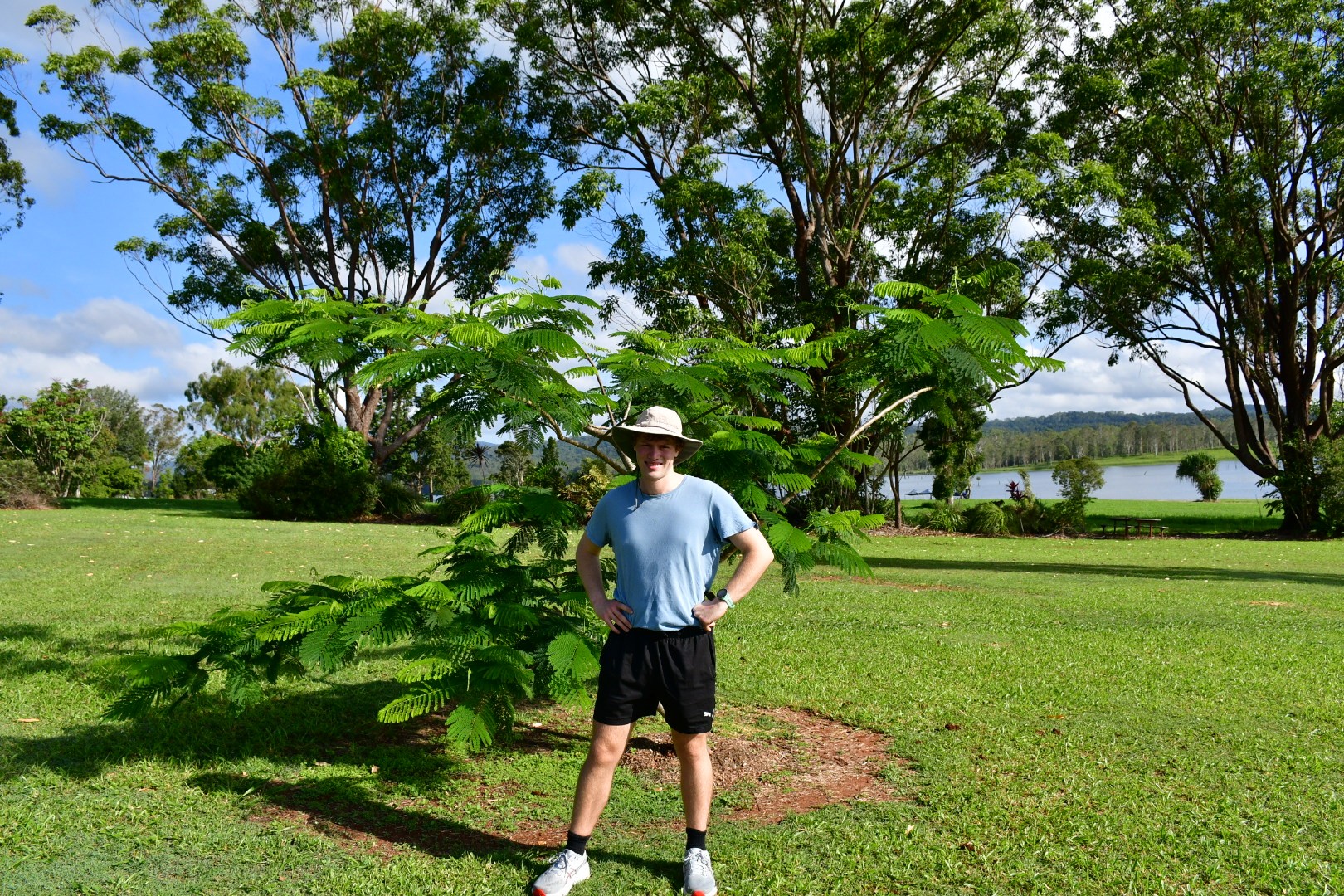 In Australia he attended a private secondary school after winning a partial scholarship in 2013 when he was 11. Because of his academic prowess and the encouragement of his parents and teachers, Alex managed to skip two grades and graduated school at just 15, having taken up rowing in grade eight – a sport he still enjoys at Cambridge where he is in the university team and is a triallist for this year’s Oxford-Cambridge Boat Race crew.
In Australia he attended a private secondary school after winning a partial scholarship in 2013 when he was 11. Because of his academic prowess and the encouragement of his parents and teachers, Alex managed to skip two grades and graduated school at just 15, having taken up rowing in grade eight – a sport he still enjoys at Cambridge where he is in the university team and is a triallist for this year’s Oxford-Cambridge Boat Race crew.
Alex attended his local university – James Cook University – and studied Physics, Maths and Chemistry there, cycling from his home to the university campus for lectures. He graduated at just 19 in 2020 with a degree in both Physics and Chemistry.
Until the point that he did his master’s in 2021 Alex had never studied any Earth Science-related subjects at university because James Cook was fairly small and the areas it covered were somewhat restricted. The closest he had come to Earth Science was a Chemistry project on extracting oils from Eucalyptus leaves. Although JCU was a small university it was with the support of some “brilliant” staff that he became more invested in doing research. “I’m really grateful to my lecturers and passionate about what regional universities provide, as the smaller nature of the university and teaching sets you up very well for contributing scientifically later on,” he says.
Postgraduate studies
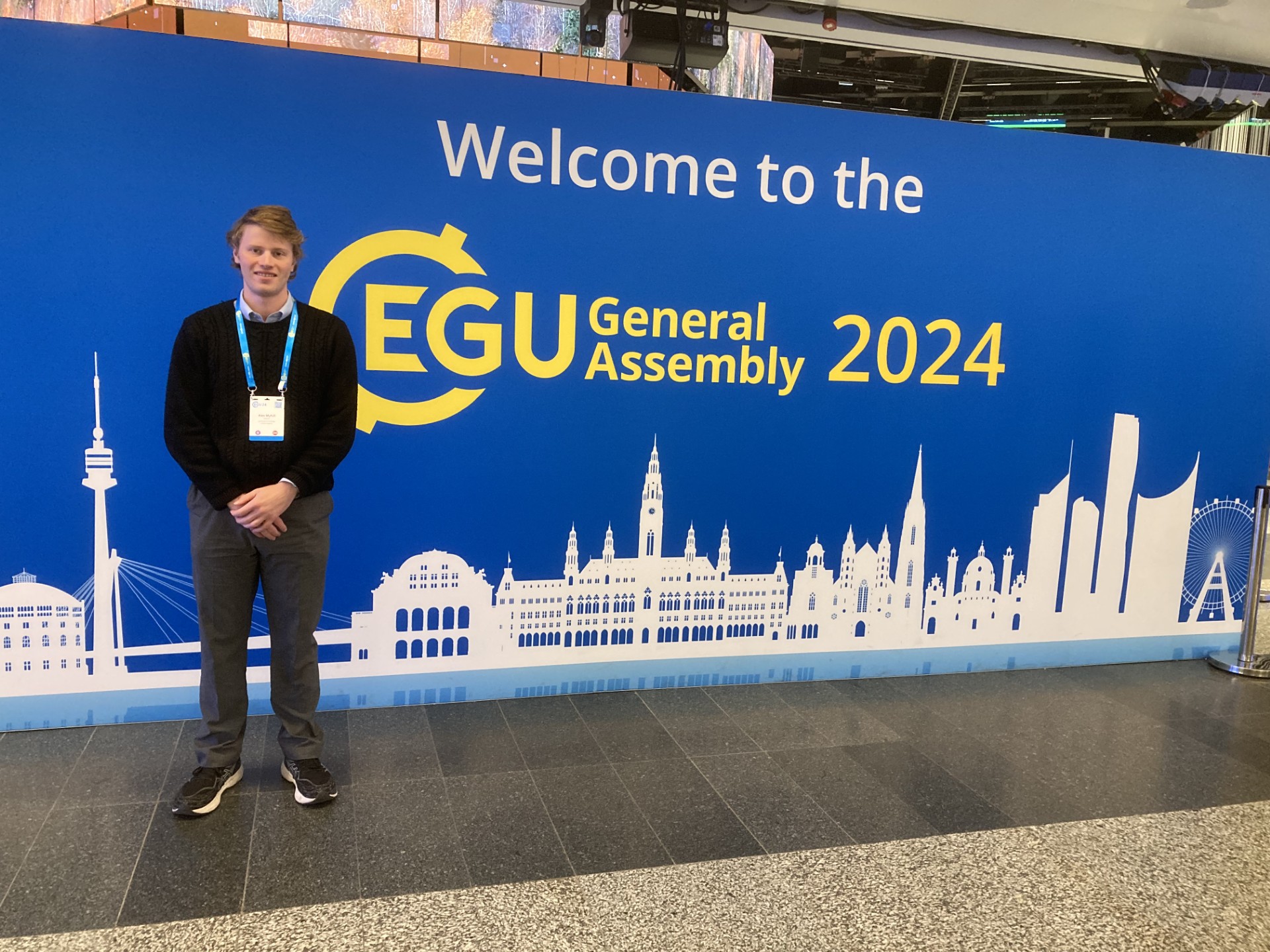 After graduating, he decided to continue his academic studies, but had nine months between finishing his undergraduate students and starting his master’s. So he did some lecturing and tutoring and worked in a computational lab. He was keen to explore more aspects of Physics and to travel the world so he applied to the University of Cambridge.
After graduating, he decided to continue his academic studies, but had nine months between finishing his undergraduate students and starting his master’s. So he did some lecturing and tutoring and worked in a computational lab. He was keen to explore more aspects of Physics and to travel the world so he applied to the University of Cambridge.
Alex did his master’s in Physics at the Cavendish Laboratory. His PhD supervisor Dr David Al-Attar does an Earth Science class there and Alex talked to him about a potential PhD project. With funding from Gates Cambridge, he started his research in 2022.
Alex is currently writing a paper and working on forward modelling of seismic waves. He compares the normal oscillations of the Earth to a guitar. “At the longest periods, the Earth oscillates only at distinct frequencies, effectively Earthquakes are causing distinct notes to be sounded, just like a guitarist plucking a string,” he says.









